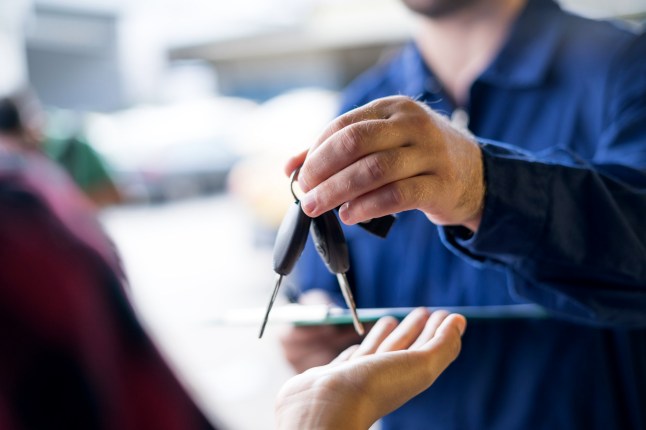To view this video please enable JavaScript, and consider upgrading to a web
browser that
supports HTML5
video
Martin Lewis has revealed that millions of motorists could soon pocket ‘hundreds, not thousands of pounds’ as part of a car finance consultation.
Millions of people buy cars with finance agreements, in which they pay a despite then a monthly fee with interest for the vehicle.
But often without telling the customer, dealerships added hidden commissions into the plans, known as discretionary commission arrangements (DCAs).
Brokers then adjusted the interest rate to charge a buyer a higher-than-necessary interest rate, leaving them paying too much.
These deals were banned by the Financial Conduct Authority (FCA) in 2021 and the regulator is now considering whether people who were mis-sold car insurance before then should be given compensation.
Sign up for all of the latest stories
Start your day informed with Metro’s News Updates newsletter or get Breaking News alerts the moment it happens.
In a video posted to X, the Money Saving Expert founder said up to 14 million motorists could get a share of the compensation pot.
He said: ‘Discretionary commission arrangements is when you went to a car broker or dealer and it increased the amount of interest that you were charged to increase its commission without telling you.

‘Now, the big problem with DCAs is that they were hidden. You didn’t know you had one.’
Who can claim compensation and how to get it
About 40% of people who bought a vehicle on a Personal Contract Purchase contract or Hire Purchase (not leasing) before January 28, 2021, paid the sneaky fees.
How much drivers could get from the compensation will depend on the commission and interest rate they paid.
‘Although most people’re going to be in the hundreds of pounds,’ Lewis said.
The FCA will launch a consultation on the insurance practice in October, with payouts likely coming next year.

Lewis said lenders will likely reach out to mis-sold customers and either pay them compensation or ask them to sign up to the FCA redress scheme.
Drivers who have already complained don’t need to do anything, but those worried they paid more should do so.
The money expert said: ‘If you’re one of those people who’ve already had a letter saying that your car finance firm, after you complained, won’t deal with it till December this year, that will almost certainly now be delayed until next year.’
To complain, Lewis advised people to use a tool that generates a template email to submit a claim.
People don’t need to use a claims management firm to do this, he stressed: ‘The fact you’ve signed up with them may mean they get 30% of your payout without doing anything at all.’

The only exception to this is those who were coughing up ‘manifestly unfair commissions’, so the interest was 55% on the cost of credit, which was not disclosed.
Lewis said: ‘As that’s case by case, unlike the DCA cases, we don’t yet know whether that will be dealt with, on they’ll contact you and pay you back.
‘Or you may have to go through the ombudsman, because that one’s more complicated.’
The Supreme Court’s car finance ruling – what does it mean?
The compensation scheme follows a landmark ruling by the Supreme Court in favour of lenders, finding them not liable for hidden commission payments in car finance schemes.
Judges did not uphold an earlier Court of Appeal judgement, which led to DCAs being outlawed.
Out of three cases, judges upheld one consumer’s case. The two others – alleging that commissions paid to car dealers were bribes and that dealers owed a duty of loyalty to the customer – were rejected.
To view this video please enable JavaScript, and consider upgrading to a web
browser that
supports HTML5
video
The judges argued that secret commissions are not automatically illegal and car dealers do not have a duty to act solely in the customer’s interest when arranging finance.
This drastically limited who can receive compensation, leaving one being floated by the FCA as the remaining option.
Yet Lewis warned that the industry ‘could fight this, and could fight it hard’.
‘Now I would urge people in the industry, this is a fair compromise,’ he added.
‘You’re going to be paying out far less than you would have done had the Supreme Court upheld what the Court of Appeal said.’
Get in touch with our news team by emailing us at webnews@metro.co.uk.
For more stories like this, check our news page.


